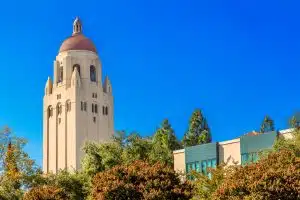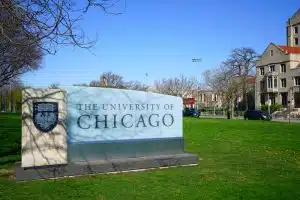Are you torn between attending the University of California, Berkeley, and Harvey Mudd College? The decision can be difficult, as both colleges have their own unique strengths and weaknesses. In this article, we will compare and contrast Berkeley vs Harvey Mudd, to help you make an informed decision about which college is right for you.
Academic Programs: Differences and Similarities at UC Berkeley vs Harvey Mudd
UC Berkeley is well-known for its broad range of academic programs, with over 350 undergraduate and graduate programs available to students. Berkeley is particularly renowned for its strong programs in engineering, business, social sciences, and humanities.
On the other hand, Harvey Mudd College is a liberal arts college with a strong focus on STEM subjects such as engineering, mathematics, and computer science. If you have a preference for a subject area, you might want to choose a college that offers a strong program in that field.
However, despite their differences in focus, both UC Berkeley and Harvey Mudd College share similarities in their commitment to providing students with a well-rounded education. Both institutions offer a variety of extracurricular activities, research opportunities, and community service programs that allow students to explore their interests and develop skills outside of the classroom.
Additionally, both colleges have a strong emphasis on diversity and inclusivity, with a commitment to creating a welcoming and supportive environment for students from all backgrounds.
Campus Culture: UC Berkeley vs Harvey Mudd
Berkeley is known for its vibrant and politically-active campus culture, with a history of student activism and protests, while Harvey Mudd College has a smaller, close-knit community that prioritizes academic excellence. Both cultures have the potential to enrich your college experience, though it depends on whether you prefer a more laid-back atmosphere or a more politically charged one.
Another factor that sets these two campus cultures apart is the level of diversity. Berkeley has a larger and more diverse student body, with a significant population of international students and students from underrepresented communities. This creates a rich and dynamic environment where students can learn from each other’s experiences and perspectives.
On the other hand, Harvey Mudd College has a smaller student body with a higher percentage of students from privileged backgrounds. While the college is making efforts to increase diversity, it may not offer the same level of exposure to different cultures and viewpoints as Berkeley.
Location Matters: Comparing Urban and Suburban Campuses
Berkeley is located in the bustling urban center of the San Francisco Bay Area. The area offers a variety of cultural experiences, outdoor recreational activities, and a diverse range of restaurants and cafes. Meanwhile, Harvey Mudd College is located in suburban Claremont, California, a quiet and safe area with easy access to Los Angeles, which more than makes up for the lack of a metropolitan atmosphere.
One advantage of attending a suburban campus like Harvey Mudd College is the abundance of green spaces and outdoor areas. The campus is surrounded by parks and hiking trails, providing students with opportunities to explore nature and enjoy the outdoors. Additionally, the smaller size of the campus and community allows for a more tight-knit and personalized experience, with smaller class sizes and more individual attention from professors.
Student Life: Extracurricular Activities and Social Scene
Both colleges offer a range of extracurricular activities but with different vibes. Berkeley has a rich mix of social and political events, club activities, and sports teams. In contrast, Harvey Mudd College is a smaller school that focuses more on academic and community service activities, but sports and recreational facilities are available just a few miles away at the Claremont College Consortium. Ultimately, it comes down to your preference for the social scene, which can significantly impact your college experience.
At Berkeley, students can participate in a variety of student-run organizations, including cultural clubs, fraternities and sororities, and academic clubs. The campus also hosts numerous events throughout the year, such as concerts, festivals, and guest lectures. Additionally, Berkeley is located in the vibrant city of Berkeley, which offers a diverse range of restaurants, cafes, and shops.
On the other hand, Harvey Mudd College has a strong focus on STEM fields, and students can participate in research projects and internships in these areas. The college also has a unique program called Clinic, where students work in teams to solve real-world problems for industry sponsors. In terms of the social scene, Harvey Mudd College has a tight-knit community, and students often participate in activities together, such as hiking, camping, and game nights.
Admission Requirements: How to Get In at UC Berkeley vs Harvey Mudd
Berkeley is a highly selective public university, admitting only about 15% of its applicants each year. Meanwhile, Harvey Mudd College is an even more selective private college, admitting only 10% of its applicants each year. Both colleges require strong academic records and standardized test scores, as well as impressive extracurricular activities. However, it’s worth noting that Berkeley prioritizes in-state applicants, which may make admission more difficult for out-of-state students.
In addition to academic and extracurricular achievements, both Berkeley and Harvey Mudd College also consider personal qualities and characteristics in their admission decisions. They look for students who demonstrate leadership, creativity, and a passion for learning. Essays and letters of recommendation are important components of the application process, as they provide insight into a student’s personality and potential.
It’s also important to note that both colleges offer various programs and resources to support students throughout their academic journey. From tutoring and academic advising to research opportunities and internships, students have access to a wide range of resources to help them succeed. Additionally, both colleges have vibrant campus communities with numerous clubs, organizations, and events, providing students with opportunities to explore their interests and make meaningful connections with their peers.
Cost of Attendance: Tuition, Fees, Room and Board
As a public university, Berkeley offers lower tuition fees compared to Harvey Mudd College, which is a private college. However, the cost of living in the San Francisco Bay Area can be relatively high, making off-campus housing more expensive. Harvey Mudd College is located in the Los Angeles area, which is also an expensive area to live in. It’s important to consider both the tuition fees and cost of living when making a decision, as well as looking at the scholarship opportunities that both colleges offer.
Additionally, both Berkeley and Harvey Mudd College offer financial aid packages to help offset the cost of attendance. It’s important to research and understand the different types of financial aid available, such as grants, scholarships, and loans, and how they can impact your overall cost of attendance.
It’s also important to note that the cost of attendance can vary depending on your individual circumstances, such as residency status and choice of major. Be sure to thoroughly research and compare the cost of attendance at both colleges before making a decision.
Career Prospects: Which College Offers Better Opportunities?
Berkeley’s proximity to San Francisco’s vibrant job market is an advantage that can open up internship and employment opportunities. Harvey Mudd College’s smaller community can offer a closer network of employers seeking highly skilled graduates. The difference depends largely on the career field of interest.
For students interested in the tech industry, Berkeley’s location in the heart of Silicon Valley provides unparalleled access to top companies such as Google, Facebook, and Apple. On the other hand, Harvey Mudd’s strong focus on STEM education and its close ties with engineering firms make it an ideal choice for those pursuing careers in engineering or computer science.
Alumni Network: How They Can Help Your Career
Both colleges have extensive and influential alumni networks. Berkeley has produced a wide range of influential and successful alumni in business, politics and entertainment, while Harvey Mudd College alumni often hold prominent positions in STEM fields. Attending either college can provide valuable connections that can help you advance in your career.
One of the benefits of having a strong alumni network is the opportunity to participate in mentorship programs. Many alumni are willing to offer guidance and advice to current students and recent graduates. This can be especially helpful for those who are just starting out in their careers and are looking for guidance on how to navigate the job market.
In addition to mentorship, alumni networks often provide access to job postings and career fairs. This can be a valuable resource for those who are looking for new job opportunities or are interested in exploring different career paths. By tapping into the alumni network, you can gain access to a wide range of job opportunities that may not be advertised elsewhere.
Student-faculty Ratio: Class Size Comparison
Berkeley has a student-faculty ratio of about 20:1, while Harvey Mudd College’s is closer to 9:1. This means that at Harvey Mudd College, classes tend to be smaller and more personal, with greater opportunities to work closely with faculty members.
Additionally, a lower student-faculty ratio can also lead to more individualized attention and support for students. At Harvey Mudd College, students have access to personalized advising and mentoring from faculty members, which can be especially beneficial for students who may need extra support or guidance.
However, it’s important to note that a lower student-faculty ratio doesn’t necessarily guarantee a better educational experience. Other factors, such as the quality of teaching and resources available, also play a significant role in determining the overall quality of education at a particular institution.
Research Opportunities: Which College Offers More?
Berkeley is known for its research excellence and offers opportunities for undergraduate students to work with faculty members on research projects. Nevertheless, Harvey Mudd College takes advantage here with its rigorous undergraduate research program that has been recognized by several universities and institutions nationwide.
Harvey Mudd College’s research program is designed to provide students with hands-on experience in their field of study. The program offers students the opportunity to work on research projects with faculty members, attend research conferences, and publish their findings in academic journals.
Additionally, the college has partnerships with several research institutions, providing students with access to cutting-edge technology and resources. This emphasis on undergraduate research has led to Harvey Mudd College being ranked as one of the top undergraduate institutions for research in the country.
Athletics Program: Comparing Sports Teams and Facilities
Berkeley has a strong and diverse athletics program, earning several national championships in multiple sports. Harvey Mudd College participates in Division III sports and is part of a larger sports consortium with neighboring colleges in Claremont.
One of the standout features of Berkeley’s athletics program is its state-of-the-art facilities. The campus boasts a newly renovated football stadium, a top-of-the-line basketball arena, and a recently constructed aquatic center. These facilities not only provide a competitive advantage for Berkeley’s athletes but also serve as a source of pride for the entire campus community.
Diversity on Campus: Comparing Student Body Demographics
Berkeley has a diverse student body with significant representation from underrepresented groups. Harvey Mudd College also emphasizes a diverse student population, particularly in STEM fields.
However, it is important to note that diversity on campus goes beyond just race and ethnicity. Both Berkeley and Harvey Mudd College also prioritize diversity in terms of socioeconomic status, geographic location, and academic background. This creates a rich and varied learning environment where students can learn from each other’s unique perspectives and experiences.
Conclusion: UC Berkeley vs Harvey Mudd
In conclusion, Berkeley and Harvey Mudd College are both excellent colleges, but they have their own strengths and weaknesses. It’s important to consider your personal preferences, priorities, and academic goals when deciding which college is the right choice for you. Good luck in your decision-making process!
Want to learn more about getting into College? You’ve come to the right place. At AdmissionSight, we have over 10 years of experience guiding students through the competitive admissions process.
AdmissionSight can help you put your best foot forward when applying to college this fall. Contact us today for more information on our services.






































